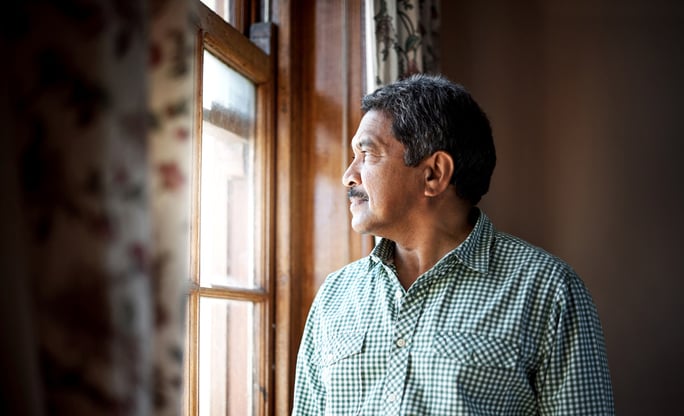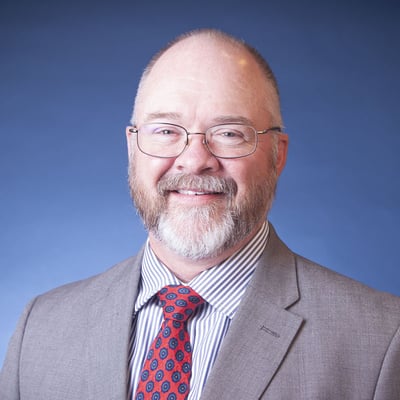What Will You Be Thinking at the End of Your Life?
There is nothing that can put your life in perspective like coming face-to-face with your own mortality. Do you live a life that is meaningful … or empty?

Solomon seemed to have it all
Toward the end of his life, Solomon wrote the book of Ecclesiastes. Much of its content was a reflection on what he had accomplished and learned throughout his life. In chapter 2 he mentions all the things he did to try to find fulfillment: fine wines, the most highly acclaimed entertainment, large and beautiful houses, majestic gardens and orchards with every variety of fruit tree imaginable. It must have been an environment fit for a king—quite literally!
And what would such opulent houses be without the finest of art? Think of the paintings, sculptures, elegant tapestries and fine works of pottery that would have tastefully decorated the home and grounds.
He had all the money he could ever desire and more than he could even spend. His navy was renowned for going to far-flung places and returning with silver, gold and precious jewels. He employed an extensive staff of servants to care for his vast properties.
His life would not be complete without an adoring wife—and he had 700 of them! As if that wouldn’t be enough, he also had another 300 concubines—giving him 1,000 women dedicated to him alone (1 Kings 11:3).
Considering all he had, surely his life would have been more complete than the life of any man ever, right?
But does having it all give life meaning?
I’ve known a number of very successful people. Some have received many accolades and awards for their success. Many have reached the pinnacle of their profession or carved out a niche for themselves in their industry. And, of course, they had money. Often they’ve traveled the world, enjoying the sights, cuisines and cultures of different areas.
Consciously or not, most have sought to find meaning, purpose and substance through all they could achieve or buy.
They were like Solomon, availing themselves of the opportunities to experience all the good things of life. Consciously or not, most have sought to find meaning, purpose and substance through all they could achieve or buy.
Notice the aged Solomon’s perspective on all he had accomplished, done and accumulated in his life:
“Whatever my eyes desired I did not keep from them. I did not withhold my heart from any pleasure, for my heart rejoiced in all my labor; and this was my reward from all my labor. Then I looked on all the works that my hands had done and on the labor in which I had toiled; and indeed all was vanity and grasping for the wind. There was no profit under the sun” (Ecclesiastes 2:10-11).
There is more to life than stuff
I remember talking with one particular man who had achieved much in his life. Yet as he approached the end of his life, he began to look back with regrets. Despite his walls being covered with awards, plaques and memorabilia of his career, he was clearly wondering whether there should have been something more.
He is not the only person like this I’ve had the chance to meet. When people reflect back on their lives, their regrets are usually about relationships—not anything to do with their careers. They think about their mates or children who they either mistreated or all but abandoned for the pursuit of their career. It is then they realize that what they gave the most attention and energy to wasn’t really the most important thing in life.
Life is designed to be more
Whether they can admit or recognize it, they also feel a regretful longing for a meaningful relationship with their Creator. We’ve been built and hardwired to need a relationship with God—yet most don’t find it and instead try to fill that need with career or other things.
No purpose, no plan, no substance.
Deep down, these people are struggling with the same thing David wrote about in Psalm 144:3-4: “LORD, what is man, that You take knowledge of him? Or the son of man, that You are mindful of him? Man is like a breath; his days are like a passing shadow.”
It is so sad that many don’t realize this need until life is almost gone and there is little time or ability to pursue it.
Don’t lose your opportunity to find meaning in life!
If you are reading this blog post, you have an opportunity to live a life with deep and real meaning! You can choose to pursue real meaning and the important things in life so that you don’t end your life looking back and lamenting that your pursuits were vanity.
Solomon provides a good reminder about the importance of putting our relationship with God first in our lives: “Let us hear the conclusion of the whole matter: Fear God and keep His commandments, for this is man’s all” (Ecclesiastes 12:13). That is what will give your life real meaning and purpose.
Date Posted: October 15, 2018

 by Tom Clark
by Tom Clark

